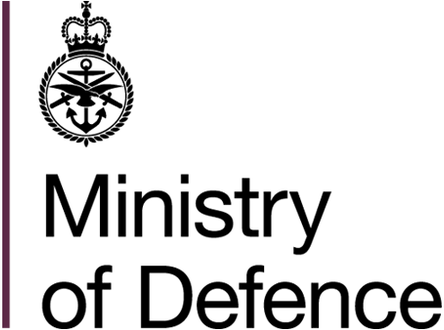External Document References
Throughout ASEMS, there are many references to important sources of information and additional guidance.
To remain consistent and current this document holds linkages to the source material. Within the main ASEMS documents, linkages are made only to internal documents (e.g., SMPs, EMPs, or S&EP Leaflets) whilst all external references have been embedded in this single document. If you see any broken or out of date links please contact QSEP at desengsfty-qsepsep-policy@mod.gov.uk.
| A Six-Step Method for the Development of Goal Structures |
The step-by-step method for the development and presentation of an argument using the Goal Structuring Notation, a systematic approach to managing Safety Cases. |
|
Adelard ASCE is a commercial tool for the development and management of Assurance Cases and Safety Cases. |
|
| AOP-15 Edition 3 | Guidance on the Assessment of the Safety and Suitability for Service of Non-Nuclear Munitions for NATO Armed Forces. |
|
Application of the Cause-Consequence Diagram Method to Static Systems |
Outlines the use of the Cause-Consequence Diagram method as a tool for System Risk and Reliability Analysis. |
| Bowtie Master is an online application designed to build high-quality Bowtie Diagrams, enhancing and streamlining Risk Management. | |
| The associated fact sheet of Bowtie Master. | |
|
Reliability of Systems, Equipment and Components: Part 5 Guide to Failure Modes, Effects and Criticality Analysis. |
|
| BS EN ISO 12100:2010 - Safety of machinery. General principles for design. Risk assessment and risk reduction |
ISO 12100 sets the international standard for machinery safety. It gives you the tools to design and develop reliable equipment that remains fit for purpose throughout its lifecycle.
ISO 12100 on the safety of machinery outlines the general principles of machinery safety and risk assessment and management. This framework helps you identify and eliminate hazards at different stages of the machinery’s lifecycle and avoid costly accidents. |
|
Building a Preliminary Safety Case: An Example from Aerospace |
The paper describes the production of these ‘Preliminary Safety Arguments’. In particular, it shows how the Goal Structuring Notation is used as the basis for presenting the Preliminary Safety Argument for a distributed computing platform for aero-engine control. |
|
An Act to make provision about the regulation of operators of dominant airports. |
|
| Defence Academy | The Ministry of Defence’s training provider. |
|
The DLSR regulate and ensure Safety and Environmental Protection in the Land Domain to enhance operational capability.
For access to: DSA02: Defence land safety regulator policy and regulations for health, safety and environmental protection DSA03.DLSR.LSSR: Land systems safety and environmental protection: defence codes of practice DSA 03 DLSR: Fuel and gas safety and environmental regulations: defence code of practice (DCOP) |
|
| Defence Maritime Regulator (DMR) Regulations |
The DMR is responsible for the regulation of Health, Safety and Environmental Protection (HS&EP) in the Defence Maritime Domain. This publication specifies the defence maritime regulations for health, safety and environmental protection for UK Ministry of Defence maritime activity.
For access to: DSA02-DMR: Defence maritime regulations for health, safety and environmental protection |
|
The DNSR is responsible for the regulation of nuclear safety across the Defence Nuclear Enterprise.
For access to: |
|
| Defence Safety Authority (DSA) Regulations |
The DSA is established by a Charter issued by the Secretary of State empowering it as an independent Regulator and Investigator for HS&EP in Defence. This series brings together the DSA regulations.
For access to: |
| Defence Standardization UK (DSTAN) |
Defence Gateway account required.
For access to all Defence Standards (Def Stans) including: |
|
Isograph's FaultTree+ uses efficient minimal cut set generation algorithms to analyze large and complex fault and event trees. |
|
| Freedom of Information Act 2000 | An Act of Parliament of the Parliament of the United Kingdom that creates a public "right of access" to information held by public authorities. |
| GEIA-STD-0010: Standard Best Practices for System Safety Program Development and Execution | This document outlines a standard practice for conducting system safety. In some cases, these principles may be captured in other standards that apply to specific commodities such as commercial aircraft and automobiles. |
| Guidelines for Environmental Risk Assessment and Management ‘Green Leaves III’ | A document which provides generic guidelines for the assessment and management of environmental risks. The guidelines supersede earlier versions published in 1995 by the Department of the Environment, and in 2000 by the Department of the Environment, Transport and the Regions and the Environment Agency. |
| Guidelines for Hazard Evaluation Procedures | Guide to hazard evaluation procedures with a number of worked examples. |
| Hazard and Operability Studies (HAZOP Studies) - Application Guide (IEC 61882 (2001-05)) | IEC 61882:2016 provides a guide for HAZOP studies of systems using guide words. It gives guidance on application of the technique and on the HAZOP study procedure, including definition, preparation, examination sessions and resulting documentation and follow-up. |
|
Isograph's Hazop+ software can be used to vastly simplify the customizing, recording, managing and reporting processes of the Hazop study. |
|
| Health and Safety at Work etc. Act 1974 | An Act to make further provision for securing the health, safety and welfare of persons at work, for protecting others against risks to health or safety in connection with the activities of persons at work. |
|
Health and Safety Executive (HSE) Cost Benefit Analysis (CBA) Checklist |
A summary of HSE's view of what should and should not be considered in a duty holder's CBA for health and safety ALARP determinations. A CBA can help a duty holder make judgements on whether further risk reduction measures are reasonably practicable. |
| HS&EP Function Operating Model | This document explains how the HS&EP Function contributes to Defence and interacts with other Defence organisations. It sets out the framework to make sure HS&EP is considered and appropriately applied across Defence, in line with the Defence Plan and the Defence SEMS. It also sets out how Defence organisations consider HS&EP when delivering the Defence tasks set out in the Defence Strategic Direction. |
| Human Factors Integration in ATM System Design | Published by Eurocontrol (European Organisation for the Safety of Air Navigation). Criteria to help designers and project managers considering human factors and measuring HF indicators throughout the various phases of life cycle of an air traffic management system. |
| International Electrotechnical Comission (IEC) 61508 Series | The IEC 61508 series provides functional safety standards for the lifecycle of electrical, electronic or programmable electronic (E/E/PE) systems and products. It addresses those parts of a device or system that perform automated safety functions including, for example, sensors, control logic, actuators and micro-processors. |
|
IEC 61882: Hazard and Operability Studies (HAZOP Studies) – Application Guide |
This International Standard provides a guide for HAZOP studies of systems using guide words. It gives guidance on application of the technique and on the HAZOP study procedure, including definition, preparation, examination sessions and resulting documentation and follow-up. |
| ISO 9000 Family | The ISO 9000 family consists of the world's best known standard for quality management systems, ISO 9001, along with a set of supporting standards on quality management, all published by ISO/TC 176 and its subcommittees. |
| ISO 14000 Family |
The ISO 14000 family of standards are developed by ISO Technical Committee ISO/TC 207 and its various subcommittees
For access to ISO 14000 family including: |
| ISO 31000 - Risk Management | ISO 31000, Risk Management – Guidelines, provides principles, a framework and a process for managing risk. It can be used by any organization regardless of its size, activity or sector. |
| ISO 45001 - Occupational Health and Safety | Standards for improving employee safety, reducing workplace risks and creating better, safer working conditions. |
|
A list of MOD Joint Service Publication (JSPs) available on gov.uk including: JSP 375 - Management of health and safety in defence JSP 418 - Management of environmental protection in defence JSP 507 - MOD guide to investment appraisal and evaluation JSP 815 - Defence Safety Management System
Please note not all JSPs have been published on gov.uk. |
|
| JSP 816 | JSP 816 sets out the mandatory requirements for the Defence Environmental Management System (EMS) framework within MOD. |
| Knowledge in Defence (KiD) |
Defence Gateway account required.
KiD defines how we conduct, govern and control our defence acquisition process and is the primary bearer of all policy and guidance governing defence’s project delivery and commercial functions. |
| Legislation.gov.uk | The official home of revised enacted UK Legislation 1267 – Present. |
| Managing Risks to the Public Appraisal Guidance | This document provides guidance for developing and assessing proposals that affect the risk of fatalities, injury and other harms to the public. |
| An Act to consolidate the Merchant Shipping Acts 1894 to 1994 and other enactments relating to merchant shipping. | |
| Military Aviation Authority (MAA) |
For access to MAA Regulatory Publications (MRPs): MRPs - Overarching Documents MRPs - Regulatory Articles (RA) MRPs - MAA Manuals |
| Minimal Cut Set Analysis | For access to information about Minimal Cut Set Analysis. |
|
Ministry of Defence Climate Change and Sustainability Strategic Approach |
The Ministry of Defence Climate Change and Sustainability Strategic Approach sets out the ambition, the principles and the methods needed for UK Defence to meet the challenge of climate change. |
|
A document which provides a uniform guide for the assessment of the safety and suitability of a non-nuclear munition for use by NATO armed forces. |
|
| Nuclear Reactor Engineering | A guide on nuclear reactor engineering. Prepared under the auspices of the Technical Information Center, U.S. Department of Energy. |
| NUREG-0492 - Fault Tree Handbook | This handbook has been developed not only to serve as text for the System Safety and Reliability Course, but also to make available to others a set of otherwise undocumented material on fault tree construction and evaluation. |
| NUREG/CR-2300 - PRAProcedures Guide: A Guide to the Performance of Probabilistic Risk Assessments for Nuclear Power Plants | This procedures guide describes methods for performing probabilistic risk assessments (PRAs) for nuclear power plants at three levels of scope: (1) systems analysis; (2) systems and containment analysis; and (3) systems, containment, and consequence analysis. |
| Organisation for Joint Armament Co-operation (OCCAR) | OCCAR is an international organisation whose core-business is the through life management of cooperative defence equipment programmes. |
|
Guidelines on tools and techniques for hazard identification and risk assessment. |
|
|
The principles and guidelines set out below are based on what the courts have decided is required of Duty Holders. |
|
|
This document describes HSE's decision-making process. It makes transparent the protocols and procedures we follow to ensure that the process of decision-making, including risk assessment and risk management, is perceived as valid. |
|
| HSE Guidance on regulating major hazards. | |
|
The RBDM guidelines describe the United States Coast Guard's risk management toolbox. |
|
|
An Act to make provision about road traffic, registration plates, vehicle and driver information, hackney carriages and private hire vehicles, and trunk road picnic areas. |
|
|
This document was prepared for conducting Safety Assessment (Safety Assessment) for large civil aircraft, and considered by the FAA as an acceptable methodology to demonstrate compliance with the safety requirements of 14 CFR Part 25.1309 (FAR 25.1309). |
|
|
This document describes how the Competent Authority's Assessors evaluate safety reports for compliance with the predictive criteria of Control of Major Accident Hazards (COMAH). This Safety Report Assessment guide should be read in conjunction with the Safety Report Assessment Manual (SRAM) and it should be noted that the current document supplements rather than supplants the SRAM. |
|
|
Secretary of State Health, Safety and Environmental Protection Policy Statement |
This policy statement sets out the MOD’s legal obligations and the requirements of the Secretary of State for Defence from individuals, managers and commanders. |
| System Safety Management (SYSSAF 1) |
Only accessible by MOD employees.
Compliance with MOD policy and instructions, legislation, and procedures that apply to the management of system safety. |
|
Adelard’s approach to safety cases in particular, and assurance cases more generally, and discusses some possible future directions to improve frameworks for goal-based assurance cases. |
|
|
The HEAT/ACT Preliminary Safety Case: A case study in the use of Goal Structuring Notation |
The paper outlines the work conducted, and appraises these perceived merits against experience during and following the construction of the Preliminary Safety Case. |
|
The MOD Sustainability and Environmental Appraisal Tools (SEAT) |
SEAT has its own section within JSP 850 Part 2. |
| Turning Up the HEAT on Safety Case Construction | The HEAT/ACT project consists of replacing the conventional mechanical flight control system of a helicopter with a fly-by-wire system. With such a project, the safety concerns are obvious, and therefore the development of a thorough and convincing Safety Case is paramount. |
| Using Reversible Computing To Achieve Fail-Safety | This paper describes a fail-safe design approach that can be used to achieve a high level of fail-safety with conventional computing equipment which may contain design flaws. |
|
Windchill FTA supports both quantitative and qualitative analyses, providing flexibility based on requirements. |



